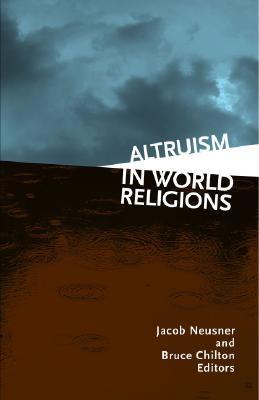
Zustellung: Di, 05.08. - Mo, 11.08.
Versand in 3-4 Wochen
VersandkostenfreiExploring a range of philosophical and religious thought from Greco-Roman "philia" to Judaism, Christianity, and Islam, from Hinduism in India to Buddhism and the religions of China and Japan, the authors find that altruism becomes problematic when applied to religious studies because it is, in fact, a concept absent from religion. Chapters on Judaism, Christianity, and Islam reveal that followers of these religions cannot genuinely perform self-sacrificing acts because God has promised to reward every good deed. Moreover, the separation between the self and the other that self-sacrifice necessarily implies, runs counter to Buddhist thought, which makes no such distinction.
By challenging our assumptions about the act of self-sacrifice as it relates to religious teachings, the authors show altruism to be more of a secular than religious notion. At the same time, their findings highlight how charitable acts operate with the values and structures of the religions studied.
By challenging our assumptions about the act of self-sacrifice as it relates to religious teachings, the authors show altruism to be more of a secular than religious notion. At the same time, their findings highlight how charitable acts operate with the values and structures of the religions studied.
Inhaltsverzeichnis
Preface Introduction: Altruism and the Study of Religion William Scott Green 1. Altruism in Greco-Roman Philosophy Robert M. Berchman 2. Altruism in Classical Judaism Jacob Neusner and Alan J. Avery-Peck 3. Altruism in Christianity Bruce Chilton 4. Altruism in Islam Th. Emil Homerin 5. Altruism in Classical Buddhism Todd Lewis 6. Altruism in Contemporary Buddhism: Thich Nhat Hanh's Socially Engaged Buddhism Bradley S. Clough 7. Altruism in Japanese Religions: The Case of Nichiren Buddhism Ruben L. F. Habito 8. Altruism in Classical Hinduism Richard H. Davis 9. Altruism in Chinese Religions Mark Csikszentmihalyi Epilogue William Scott Green Contributors Acknowledgements Index
Mehr aus dieser Reihe
Produktdetails
Erscheinungsdatum
08. November 2005
Sprache
englisch
Seitenanzahl
202
Reihe
Georgetown University Press
Herausgegeben von
Suzanne Neusner, Bruce Chilton
Verlag/Hersteller
Produktart
kartoniert
Gewicht
262 g
Größe (L/B/H)
213/140/20 mm
ISBN
9781589010659
Pressestimmen
"A fascinating assessment of the 'place' of altruism in religion. Generally perceived as a religious value, it is surprising to learn that altruism is generally defined in the West as either irrelevant or in tension with the fundamental concerns of most of the world's major religious traditions. It is not that the world religions neglect duty to others, benevolence, charity, and the like, but rather that our contemporary understanding of altruism is not capable of accounting for these values in their local contexts." - Don Wiebe, professor in the Faculty of Divinity at Trinlty College, University of Toronto and cofounder of the North American Association for the Study of Religion "These careful textual studies disclose the reward structure ingredient in the world's great religious traditions. Their impact is theologically provocative, to say the least. Stunning!" - Barbara Deconcini, executive director, American Academy of Religion"
Bewertungen
0 Bewertungen
Es wurden noch keine Bewertungen abgegeben. Schreiben Sie die erste Bewertung zu "Altruism in World Religions" und helfen Sie damit anderen bei der Kaufentscheidung.












